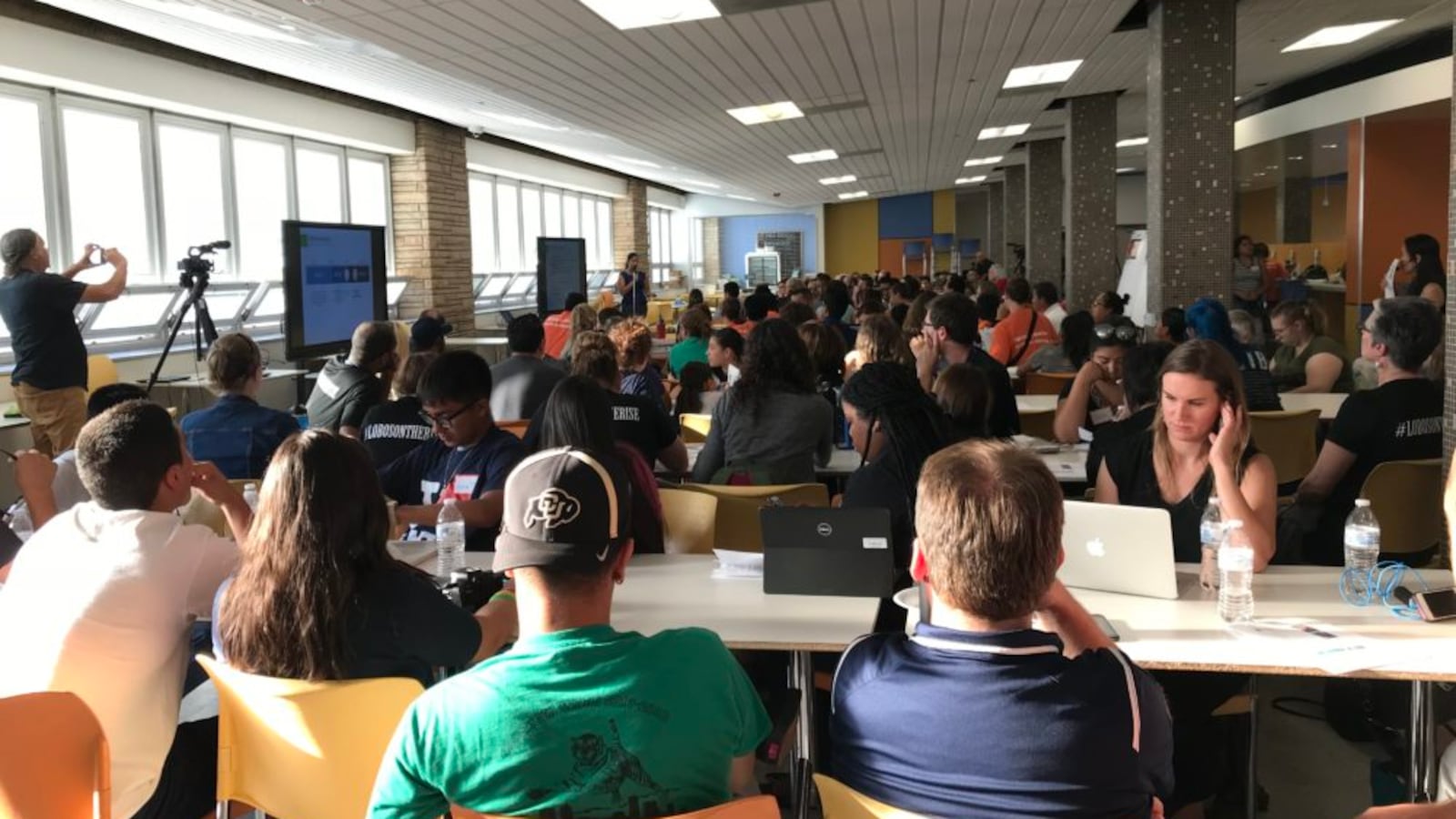Many in Denver hope the next superintendent will be a person of color with teaching experience and a commitment to closing achievement gaps, engaging with the community, and creating safe schools with sufficient mental health support for students.
Amid those broad themes, a consultant’s report summarized for the school board Thursday included plenty of fine print: A majority of racial and ethnic groups believe the district is headed in the right direction, but Native American residents do not; the Denver teachers union seeks a leader willing to give teachers autonomy, but special education advocates worry that school autonomy allows students with disabilities to be pushed out; a large charter school network wants a superintendent who appreciates charters while some community members say charter school expansion must be stopped.
The list, garnered from comments from more than 4,500 people over the past few months, goes on and on, and illustrates just how tough it will be to find a schools chief who can satisfy the various — and sometimes contradictory — expectations of staff, parents, students and advocates in Colorado’s largest district.
School board members asked two consultants clarifying questions about the report Thursday, but did not discuss the findings at length. They have set a Dec. 10 deadline to name a replacement for Superintendent Tom Boasberg, whose last day was Oct. 19.
Several board members emphasized that while collecting the community feedback was valuable, they want to show how the feedback plays into the new superintendent’s selection, and continue to connect with community members after the search is over.
“This is a beginning. This is not a project that is done. We’re trying to learn a new way to engage our community,” board President Anne Rowe said.
The consultants, from the firm Dimension Strategies, repeatedly mentioned the hunger among community members who attended forums to talk about a wide array of educational concerns, including some not related to the search.
Their report reflects the breadth of topics discussed in the scores of recent meetings.
A church-affiliated group worried about the elimination of school libraries. Members of a Latino human services organization said the district should introduce comprehensive sex education. A school PTA voiced concern that there were no resources available for them to market their school. An Asian advocacy group worried that Asian leaders don’t get promoted in the district.
Some parents expressed concern about the difficulty in getting to schools outside their neighborhood, the lack of language support for non-English speaking families, and worry that schools are over-policing students instead of offering social-emotional help.
Students advocated for personalized learning and bullying prevention, and said they want a superintendent who will seek out and consider their views.
Teachers and principals cited over-testing, the district’s controversial school-rating system, and fears about retaliation if they criticize district policies.
Some community members also worried about the negative publicity from “district detractors.”
Participants in one feedback meeting said the search could be hampered by “those who constantly speak negatively about the district and believe DPS can do no good, even when they achieve any measure of success.”
Check out the 86-page community engagement report here, the 43-page version presented to the school board here, and the 262-page appendices here.

